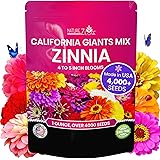Yaheetech 8×2ft Wooden Horticulture Raised Garden Bed Divisible Elevated Planting Planter Box for Flowers/Vegetables/Herbs in Backyard/Patio Outdoor, Natural Wood, 95 x 25 x 11in
25% OffLand Guard Galvanized Raised Garden Bed Kit, Galvanized Planter Garden Boxes Outdoor, Oval Large Metal for Vegetables…………
24% OffComposting is a natural process that involves the decomposition of organic matter into nutrient-rich soil. It’s an eco-friendly way to reduce waste and create healthy, fertile soil for your garden. If you’re new to composting, starting your own pile can seem daunting, but it’s actually quite simple once you know the basics. In this guide, we’ll cover everything you need to know about how to start composting at home.

What Is Composting and Why Should You Start?
Composting is the process of breaking down organic material such as food scraps, yard waste, and animal manure into a rich, nutritious soil amendment. By composting, you can divert organic waste from landfills where it would decompose without oxygen and produce methane gas, which contributes to climate change. Instead, by composting, you can create a valuable resource for your garden while reducing greenhouse gas emissions.
The Basics of Starting Your Own Compost Pile
To get started with composting, you’ll need three things: brown materials (such as leaves or shredded paper), green materials (such as fruit and vegetable scraps), and water. The ratio of browns to greens should be about 2:1 to ensure that your pile doesn’t become too wet or too dry. Once you have your materials gathered, follow these steps:
1. Choose a location for your compost pile. Ideally, it should be in a sunny spot with good drainage.
2. Clear the area of any grass or other plants.
3. Create a base for your pile using branches or twigs. This will allow air to circulate through the pile.
4. Add your browns and greens to the pile, alternating layers until you reach the desired height.
5. Water the pile thoroughly, making sure that it’s moist but not soaking wet.
6. Cover the pile with a tarp or other material to keep it moist and protect it from animals.
Tips for Maintaining a Healthy Compost Pile
Once you’ve gotten your compost pile going, there are several tips you can follow to maintain its health:
1. Turn the pile regularly to aerate it and mix up the materials.
2. Keep the pile moist but not overly wet.
3. Add fresh materials to the pile as they become available.
4. Use a compost thermometer to monitor the temperature of the pile. Ideal temperatures range between 130°F and 170°F.
Common Mistakes to Avoid When Composting
While composting is relatively easy, there are some common mistakes that people make when getting started. Here are a few to watch out for:
1. Not mixing browns and greens properly.
2. Adding meat or dairy products to the pile, which can attract rodents and cause odors.
3. Overwatering or under-watering the pile.
How to Use Your Homemade Compost in the Garden
Once your compost has fully decomposed, you can use it in your garden to improve soil health and boost plant growth. Simply spread the finished compost on top of your soil and work it in with a rake or tiller. You can also mix it into potting soil for container gardens.
Frequently Asked Questions About Composting at Home
Here are answers to some commonly asked questions about composting:
Q: How long does it take for compost to break down?
A: The time it takes for compost to break down depends on various factors, including the size of the pieces of material, the amount of water, and the temperature. On average, it can take anywhere from six months to two years for compost to fully break down.
Q: Can I add anything to my compost pile?
A: While many types of organic matter can be added to a compost pile, there are certain items that shouldn’t be included. These include meat or dairy products, which can attract vermin and cause odor problems, as well as plastic, glass, or metal, which won’t break down and could damage equipment if mixed in with the pile.
Q: What do I do if my compost smells bad?
A: If your compost pile starts to smell bad, it may mean that it’s too wet or hasn’t been turned enough. To fix this problem, turn the pile more frequently to increase airflow and mix up the materials. You can also sprinkle lime or wood ash on the surface of the pile to help absorb excess moisture.
Related Content
- From Seed to Table: How to Create a Sustainable Vegetable Garden
- How to Start Composting at Home: A Beginner’s Guide
- How to Build a Raised Bed Garden Step by Step
- Why compost is key to cutting emissions in US | Plastics News
- Europe Food Waste Composting Machine Market Is Progressing Towards A Strong Growth By 2027















































